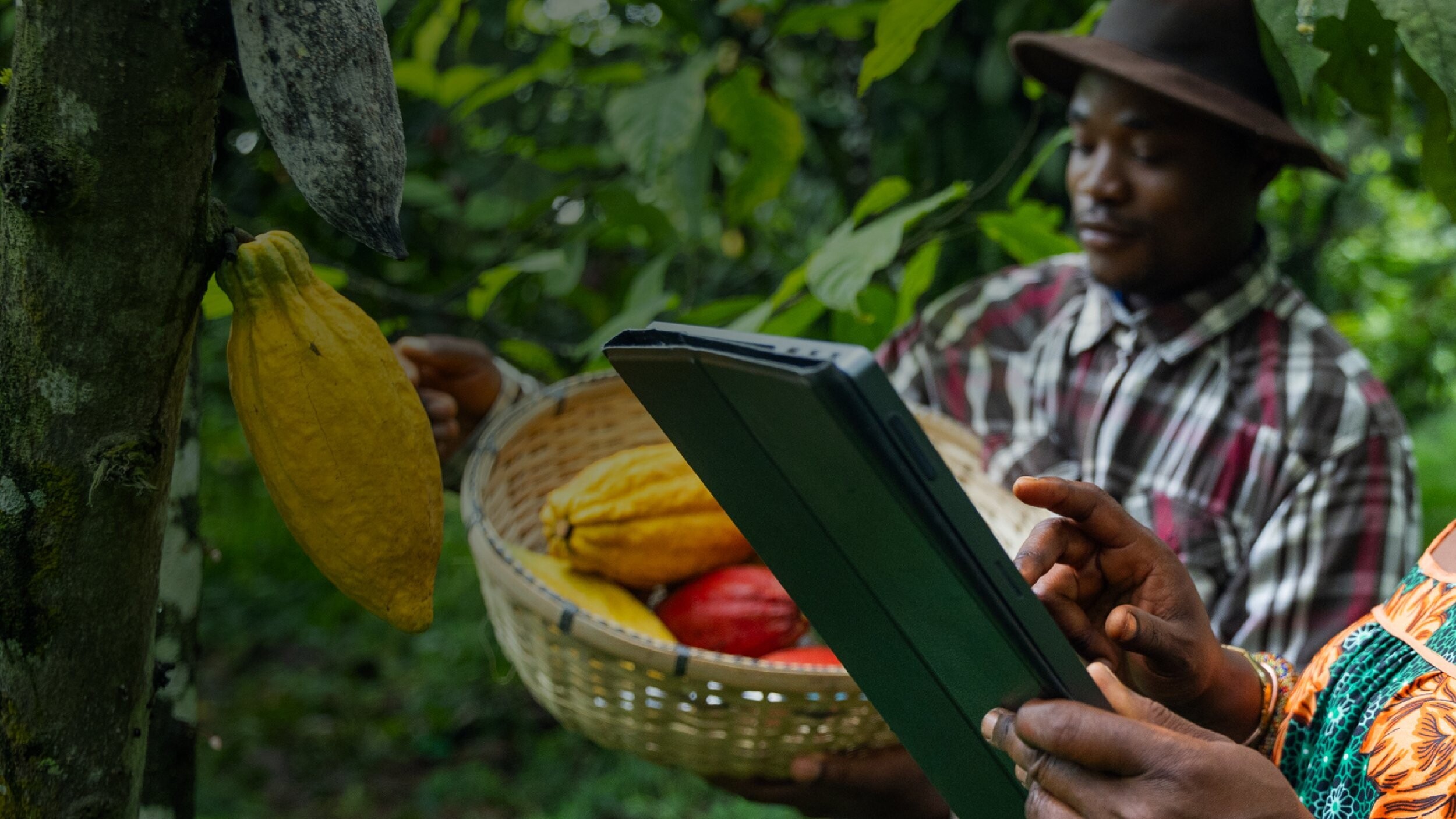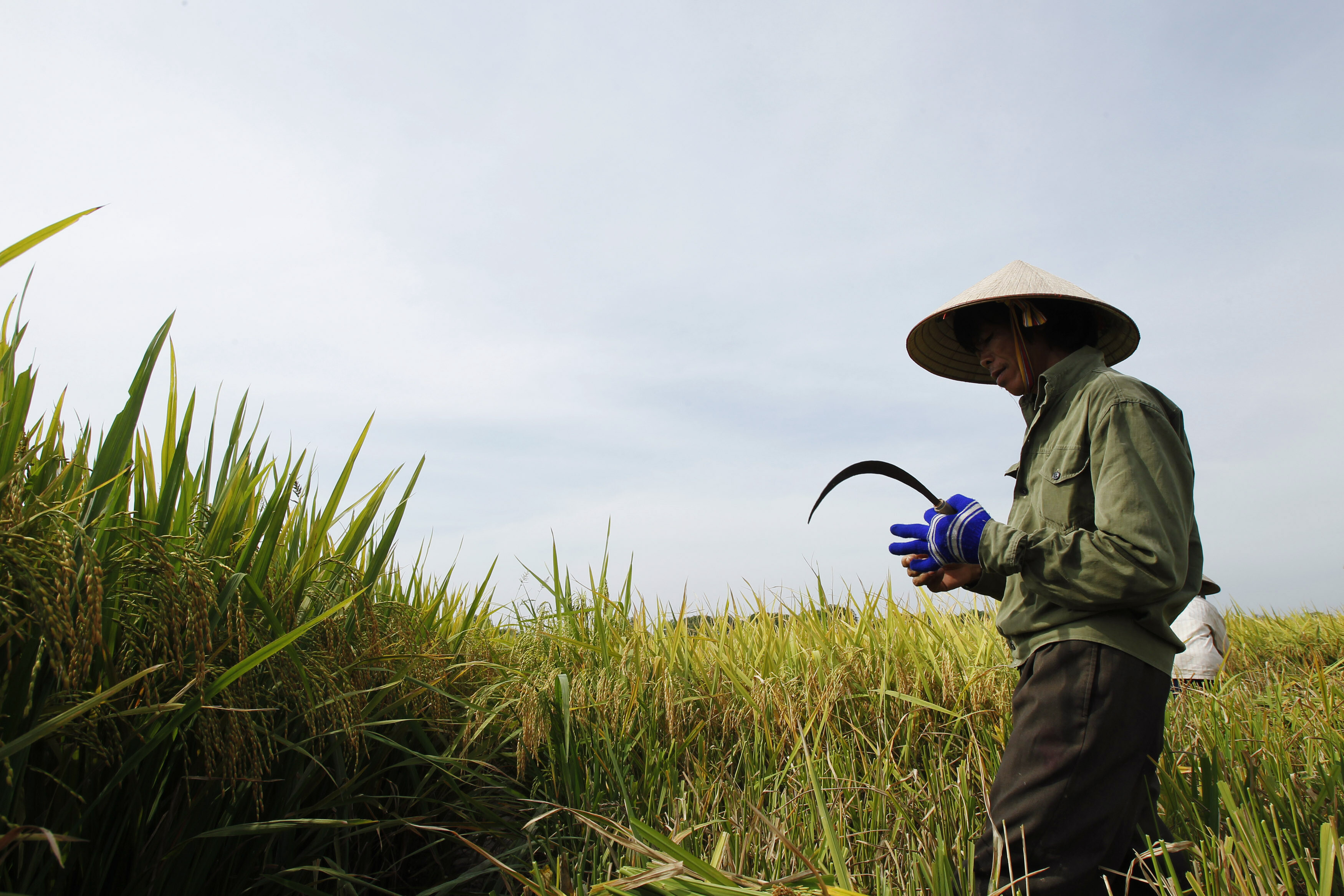Doing deeper work: 3 things to learn about the process of systems change

Tackling the world’s biggest challenges from the ground up. Image: Getty Images
Francois Bonnici
Director, Schwab Foundation for Social Entrepreneurship; Head of Foundations, World Economic ForumCynthia Rayner
Adjunct Faculty, Bertha Centre for Social Innovation, University of Cape Town Graduate School of BusinessThe Systems Work of Social Change by Cynthia Rayner and François Bonnici, published by Oxford University Press will be released 1 September. Join the conversation on the World Economic Forum Book Club.
- Social-change leaders are tackling the world’s biggest challenges from the ground up.
- Their strategies offer important lessons for overcoming systemic and structural barriers at scale.
- They tend to focus on process not outcomes, they respond to the nuances of the context with humanity and they put power in the hands of those closest to the problem.
Last month, scientists from the Intergovernmental Panel on Climate Change (IPCC) sounded their strongest warning yet that global warming of 2°C will be exceeded during the 21st century unless “rapid and deep reductions” in CO2 and other greenhouse gas emissions occur in the coming decades.
The same week, the US called on OPEC to increase oil production to reduce fuel costs, which the Biden administration worries may dampen global recovery.
The apparent contradiction of these two global headlines perfectly captures a world in a paralysis. While the challenges of poverty, inequality, racial justice, and climate change have never been more pressing, we seem unable to change direction or respond imaginatively for sustained periods. In fact, our very mechanisms for change at the macro level seem only to entrench the status quo. We are desperate for systems change, but don't know how to do it.
At the same time, we’ve observed that across the world, millions of social-change leaders rise each day and work with purpose to change their communities and environment in small but profound ways. Paul Hawken, author of Blessed Unrest, has described this as the “largest social movement in history.”
Let’s start with recognizing that change is in fact possible and many social-purpose organizations around the world are proof of this.
”Their work is mostly unglamorous and happening at a local level and therefore is often overlooked. But if we care to take notice, these organizations are showing us a powerful set of principles and practices for how we can respond more effectively to the challenges we face and start to build a more inclusive and sustainable world. We call this work “systems work”.
Here are 3 examples of successful systems work – and what this might mean for change at the macro level:
1. A focus on process not outcomes
Twenty-first-century organizations—governments, businesses, and social-change organizations included—are increasingly grappling with the growing complexity of our global society. And this is no simple matter to deal with. When problems arise in complex systems you can’t treat them like a plumber would a leak.
Take for example the challenge of poverty in the USA, which is skewed along racial and ethnic lines with systemic barriers to everything from jobs, housing and healthcare. After years of intervention to tackle this, the rise of the BlackLivesMatter movement and global protests around systemic racism show that little has changed.
However, one organization that has made significant inroads in reducing absolute poverty and is showing results that most others only dream about is UpTogether with its offshoot, the CII - Community Independence Initiative, (formerly FII – the Family Independence Initiative).
There is a growing awareness that the embedded power of outsiders who are seeking to help may be a barrier to the very change they want. How can we shift the power for change back to everyday people? 'Peer Driven Change' is a key strategy for this shift.
”So, what are they doing differently? Rather than just promoting successful outcomes, the crucial shift is that they are focusing on the process of change. Specifically, they've found that building a sense of solidarity among people, changing how they perceive themselves as a group, can create far more powerful and enduring effects than trying to create individual behaviour change.
UpTogether and CII encourage families to self-organize into peer support groups to champion financial goals to remove them from poverty. Through these groups, families can respond to their daily challenges and ultimately increase their income and self-sufficiency. Significantly, the connections of these groups hold fast and have helped these communities better cope with the COVID-19 crisis, too.
2. Respond to the nuances of the context with humanity
On the other side of the world, another organization, mothers2mothers (m2m), is doing something very similar in tackling a different but equally sticky systemic challenge in sub-Saharan Africa—the treatment and prevention of HIV/Aids.
m2m positions mothers, who are themselves living with HIV, as frontline health workers in communities and clinics serving pregnant women and new mothers. Importantly, the initiative empowers the “mentor mothers” to respond as they feel is necessary in the moment.
So, although trained to support healthcare providers and patients diagnosed with HIV in the management of their disease, their conversations with women living with HIV are far from scripted; their ability to connect and discern the needs of their clients derives from their intimate experience of being in the patient’s place themselves.
By taking this unusual step of putting those closest to the problem at the heart of the problem-solving process and giving them the tools they need to be effective, m2m has been able to solve the problem of scale. More conventional approaches to scale—such as replication and partnership—too frequently result in diminished quality or unintended consequences. The ingenuity of m2m is that it enables mothers to improvise as needed to respond to the unique context of each interaction to ensure that a “solution” is having the greatest possible impact.
3. Put power in the hands of those closest to the problem
Giving people the authority and agency to respond to context is closely related to a third and crucial principle of successful systems work: who has the power?
There are many “faces” of power to consider (a concept attributed to sociology scholar Stephen Lukes). The first two—decision-making and agenda-setting—are easily spotted, but ideological power, the power that sits far beneath the surface and drives the deep-seated issues in our social systems, is not.
Patterns of behaviour, and the motivations and circumstances that drive these patterns, are circumscribed by social norms, values, and beliefs that often go unnoticed and largely uncriticized. Unwittingly or not, the powerful circumscribe the parameters within which these norms are followed. In other words, they set the temperature of the water in which everyone must swim.
Arbind Singh, founder of Nidan, an organization that supports informal workers’ rights in India, knows this first-hand. This is why, while Nidan uses traditional protest tactics to demand more inclusive policies for informal workers, their more fundamental work has become the implementation of these policies at the local level. Nidan ensures that laws and policies include provision for informal workers to step into positions of decision-making, such as Town Vending Committees with a percentage of seats reserved for informal workers.
In a similar fashion, Slum Dwellers International (SDI) has spent 24 years promoting the role of the urban poor in making decisions about slum clearance and housing development.
These interventions go beyond participatory approaches to development where a set of stakeholders are invited into a process that has already been designed on their behalf. Rather, it is about creating new power configuration to replace the status quo.
Undoubtedly, this is easier said than done. Right now, we are living in a world where institutions and long-standing social norms are influencing our beliefs and behaviours to the extent that change is tough and sometimes, we cannot even begin to imagine change.
Let’s start with recognizing that change is in fact possible and many social-purpose organizations around the world are proof of this.
Rather than losing hope and remaining paralysed, we can choose to learn from the organizations that are getting it right — even in small ways. We can start to foster new practices and approaches that distribute agency to people closest to these challenges, opening up new possibilities as we enter an era demanding radical transitions to new ways of organizing our societies and economies.
Cynthia Rayner and François Bonnici are the authors of the new book The Systems Work of Social Change available at OUP & Amazon.co.uk.
The initiatives and organizations highlighted are Awardees of the Schwab Foundation for Social Entrepreneurship. Read more here.
Don't miss any update on this topic
Create a free account and access your personalized content collection with our latest publications and analyses.
License and Republishing
World Economic Forum articles may be republished in accordance with the Creative Commons Attribution-NonCommercial-NoDerivatives 4.0 International Public License, and in accordance with our Terms of Use.
The views expressed in this article are those of the author alone and not the World Economic Forum.
Stay up to date:
Social Innovation
Related topics:
Forum Stories newsletter
Bringing you weekly curated insights and analysis on the global issues that matter.









